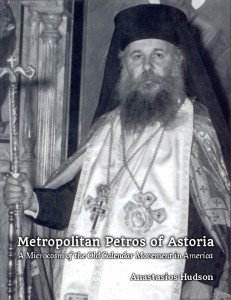Tradition vs. Custom for Protestants
Part of my ongoing Correspondence series, featuring replies to people who contacted me and asked questions, mostly when I served as a priest (2008-2013).
Dear M.,
“Therefore, brethren, stand fast, and hold the traditions which ye have been taught, whether by word, or our epistle” (II Thessalonians 2:15).
I have long thought that Evangelical Protestants approach problems with a methodology of identifying a dichotomy and then arguing for the one side and against the other, but I believe that oftentimes these dichotomies are false dichotomies, or straw men. Obviously, since I am an Orthodox Christian and former Protestant, but you know me well enough to know that I am not approaching this merely as a polemicist but as a fellow open-minded truth seeker (Truth being found in the person of Our Lord, God, and Savior Jesus Christ).
You are an intelligent and thoughtful person, and I always enjoy our discussions, and in fact, look forward to that day when again I will see you in person, if the Lord should grant it. For that reason, I will simply come out and say that your post was a drive-by post that doesn’t really touch the issue, and you can and should penetrate a little deeper.
What are the arguments that traditionalists such as myself make? Do we ever suppose that our Traditions are above the Bible? Of course not! We obviously believe that our Traditions are in perfect harmony with Biblical Truth, are revealed by Christ through the Holy Spirit, and are part and parcel of the Apostolic Deposit of Faith, whether by word or by letter. Holy Tradition has been called “Scripture Rightly Understood” or the Word of God as lived and experienced in each generation.
Yet we do not imagine that everything old is necessarily good; St. Vincent of Lerins, who tackled this problem in the 5th century, had the famous statement that what is Tradition and True is that which is believed at “all times, everywhere, by all people.” Obviously, there will always be those who deny Truth and break away, but that was not his point. His point is that there has to be evidence of a teaching being present in all times, places, and by all peoples in the Church. That which cannot be traced to the beginning, or is being championed in only once place, or by only a select few, is not Tradition but rather is “an antiquity of error.”
We Orthodox, for instance, have faithfully passed down such universal practices of the Church (at least they were universal until the Protestant Revolution) such as making the sign of the Cross, baptizing by three full immersions into the Father, Son, and Holy Spirit, etc. Yet we also find improper customs floating about that have to be addressed and rooted out in each generation; things such as the faithful only receiving Holy Communion once, twice, or thrice a year, which St. Nikodemos the Haghiorite attacked vociferously as anti-Tradition in the 19th century.
So the question should not be whether you will follow Tradition or Biblical teachings; your question should be what is Tradition and whether a certain practice is really a Tradition or merely a degenerate custom that has infiltrated the body like a weed among grass.
Is this merely a matter of semantics? No, I would say not; firstly because St. Paul commands us to follow certain Traditions, so we need to take him seriously and figure out what he means by that, and secondly because it’s just too easy for Protestants to label anything they don’t like as a preference as a “dead Tradition” which can be disposed of.
The things that you mention in the SBC (Southern Baptist Convention) and other Baptist conventions are not matters of Tradition but are rather customers–rather lately developed–which not only have no basis in Scripture, but are anti-Scriptural, are completely novel, and divide SBC members from the universal practice of the ancient Church. That some SBC members such as yourself have rejected these practices and especially in a different social/cultural context is positive and may we all look in our own hearts for those things that separate us from Christ and the practices of His Holy Church.* But let’s do it with an eye toward fidelity toward the legitimate Tradition of the Church, and not with an eye toward innovation and creating yet more and new expressions of Christianity in the name of relevance. True, legitimate Tradition will always be flexible and broad enough to speak to all peoples and cultures.
Yours in Christ,
Fr. Anastasios
(* M. is referring to his parish Church’s rejection of anti-alcohol teachings, which separates it from the wider Southern Baptist Convention to which it belongs).


